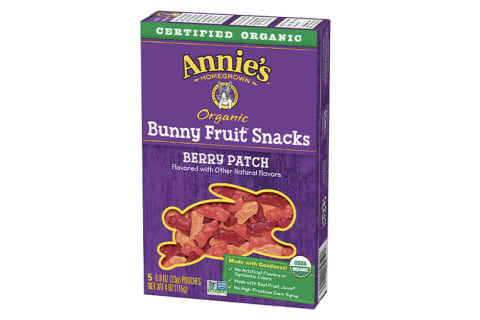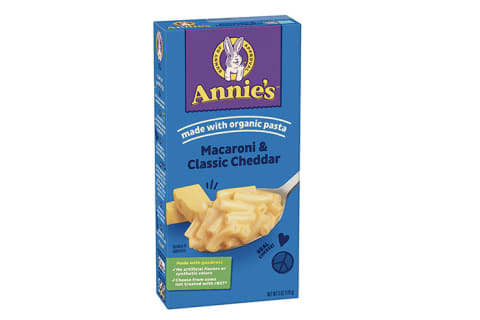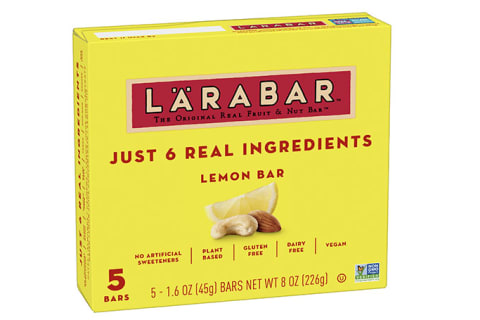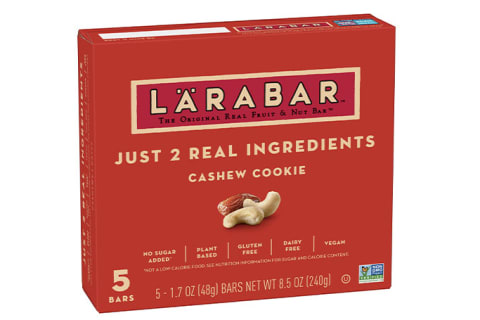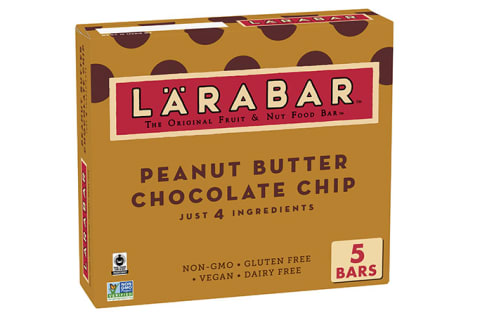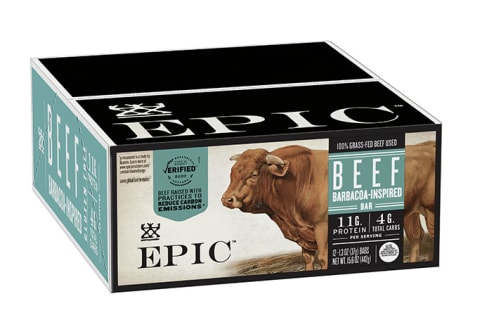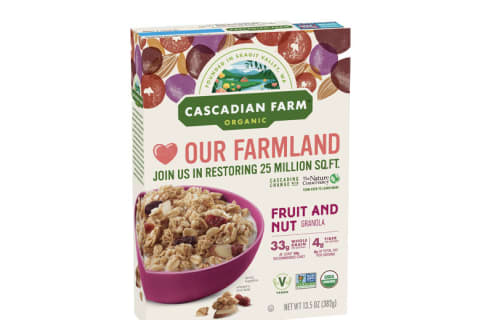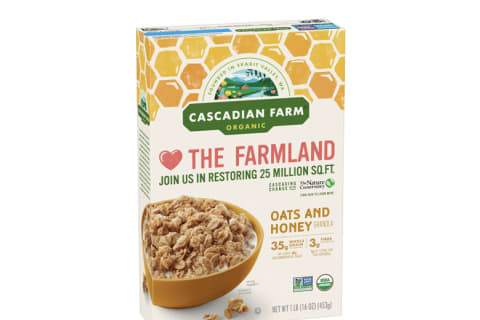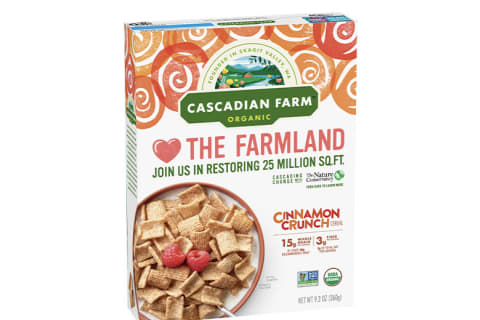Advertisement
Eat For The Earth: 4 Small Ways To Be A More Conscious Consumer In The Checkout Line

When it comes to fighting climate change and how we can do our part as consumers, it's easy to feel like our daily efforts aren't making an impact.
Fact: Impact doesn't happen overnight, whether you're a big corporation or just one person. It's not one choice (or one action) that leads to a better, greener tomorrow. It's those small, innocuous, everyday choices that get us there. After all: Individually, we're a drop; together, we're an ocean.
But where do we begin? Well, let's start with something we do every single day, no matter what: eating. One-third of greenhouse gas emissions come from food systems (80% of which come from agriculture), so making better choices at your local grocery store is an extremely powerful way to cast your vote for a better future. The food industry is a $1 trillion market in America alone, so it's safe to say this is one area whose impact will go a long way. Here's how we can all take part in that effort:
Choose organic (when it makes sense).
Despite exploding in popularity over the last few decades, organic agriculture still amounts to less than 1% of all farmland in the United States. Let's fix that: Without even going into the health benefits organic food can have for you (though there's certainly a lot to say there), we're here to talk about how organic food contributes to environmental sustainability1.
Choosing organic options reduces greenhouse gas emissions, preserves natural resources, and promotes agricultural and biodiversity, (not to mention, it's usually fresher, more nutrient-dense, and GMO-free).
When most people think of organic, they think fruits, vegetables, and dairy. But many of us (especially parents!) spend most of our time at the store stocking up on pantry staples that can feed the whole family. So if you ask us, the next frontier in this "organic revolution" is taking place in those inner aisles. Annie's is one brand that's not only making the organic lifestyle more attainable but with a portfolio filled with comfort foods and snacks, they make going organic approachable (and fun!) for your kids to join too.
Mind the tap.
From the moment we wake up and hop in the shower to the moment before bed when we brush our teeth, water is one of the most essential resources in our daily lives. But we may be taking it for granted, as one Harvard study revealed that the water supply in the U.S. may reduce by as much as one-third in just a few decades.
So curtailing our water intake is one seriously effective tactic to reduce our overall environmental impact. No, we're not asking you to stop showering or flushing the toilet—simple changes here, folks. We're imploring you to choose brands that are as mindful about water intake as you are. Take LÄRABAR, for example. Did you know that almond farming is one of the biggest consumers of water2 in the world? And did you also know that LÄRABAR, through a partnership with Ecdysis, is investing in promising research to reduce irrigation through regenerative farming methods? Now you do.
Shop Larabar:
Rebuild, restore...regenerate.
We at mbg are no strangers to the regenerative agriculture movement—an approach to farming that focuses on techniques that rebuild soil organic matter. When practiced at scale, this method not only maintains the health of the land but can actually improve it. Transitioning 10 to 20% of agricultural systems to this method will curtail carbon emissions enough to keep global warming below 2 degrees Celsius and reverse climate change.
Two years ago, General Mills made a commitment to advance regenerative agriculture across 1 million acres of farmland by 2030 (you can read all about it here). EPIC Provisions has been leading the charge, through collaborations with organizations like the Savory Institute and partnerships with suppliers like White Oak Pastures. And now they're making it even easier for consumers to get in on the action by developing products that implement these practices like their Beef Barbacoa–Inspired Bar—the first EPIC bar to bear Savory Institute's Land to Market™ Ecological Outcome Verification™ (EOV) Seal, illustrating the beef in this product was raised using regenerative agriculture practices that improve soil health, biodiversity, and ecosystem function.
Support from the ground up.
"Farmed out" is a term used to describe the roughly 1 billion acres of deserted farmland across the globe. Once this land has been cultivated to the point of abandonment, the resulting "degraded" soil can release up to two-thirds of its carbon emissions3.
Now for the good news: Plenty of organizations are actively working to restore this land and bring it back to productive use. And what's better is that you can probably find them at your grocery store. Cascadian Farm has big ambitions to prove that supporting our planet can be delicious. They're starting with a mission to restore 25 million square feet of farmland in partnership with The Nature Conservancy, which will have a significant impact on groundwater, soil enhancement, and wildlife habitat. In short: better land, better planet, better tomorrow.
Shop Cascadian Farm:
The takeaway.
None of us is going to solve the climate crisis on our own. But every purchase we make is a vote for the type of future we want. So let's all vote for a greener one, shall we?

Why Nutrition Is Key To Changing Your Relationship With Alcohol
Brooke Scheller, DCN, CNS

Why Alcohol Sabotages Your Gut Health & How To Get Back On Track
Brooke Scheller, DCN, CNS

Why Nutrition Is Key To Changing Your Relationship With Alcohol
Brooke Scheller, DCN, CNS

Why Alcohol Sabotages Your Gut Health & How To Get Back On Track
Brooke Scheller, DCN, CNS

Why Nutrition Is Key To Changing Your Relationship With Alcohol
Brooke Scheller, DCN, CNS

Why Alcohol Sabotages Your Gut Health & How To Get Back On Track
Brooke Scheller, DCN, CNS

Why Nutrition Is Key To Changing Your Relationship With Alcohol
Brooke Scheller, DCN, CNS

Why Alcohol Sabotages Your Gut Health & How To Get Back On Track
Brooke Scheller, DCN, CNS


